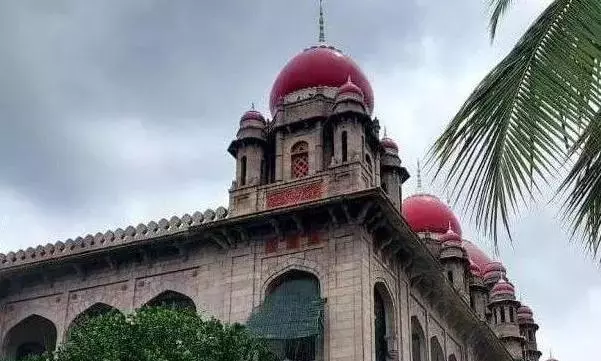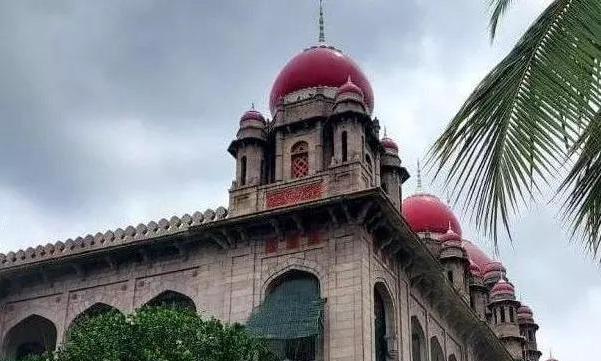
HYDERABAD: Justice K. Surender of the Telangana High Court set aside a sentence against an assistant executive engineer of the panchayat raj department by giving the petitioner the benefit of doubt. The petitioner was convicted by the principal special judge for SPE and ACB cases at Hyderabad, under Sections 7 and 13(1)(d) r/w 13(2) of the Prevention of Corruption Act. According to the prosecution, the de facto complainant, an MPTC member, was awarded three contracts for laying metal roads. Having entered into an agreement with the department, work orders were issued and accordingly, he completed the works within time. The roads were laid under the ‘food for work’ programme. The wages include distribution of rice, which would be released by issuing rice coupons by the appellant within the jurisdiction. The appellant was required to release a total extent of 80 quintals of rice for which he demanded a bribe of Rs 10,000. A trap was laid in March 2003. The special judge based on the evidence before the court convicted the appellant. The case of the appellant is that he did not demand any amount and also that when the appellant refused to accept, P.W.1 forcibly kept the amount on the table. The appellant pushed the money with the notebook that was in his hand and asked P.W.1 to take back the amount. B. Venkatrantam, counsel appearing for the appellant, submitted that the prosecution has failed to prove that 80 quintals as alleged by the complainant/P.W.1 were due to him. ACB officials who conducted a search in the house found ex.P5, and found a bunch of coupons for three works that they seized and projected them as though the said coupons were due to be given to P.W.1. As seen from ex. P5, they are office copies of coupons, which in fact would be in triplicate. The court found that the prosecution has not examined the MPDO, who issued coupons to know whether any coupons were in fact issued and sent to the appellant for the purpose of handling it over to P.W.1. There is no reason as to why the person who had to issue coupons, that is the MPDO, was not examined by the prosecution. Non-examination of MPDO casts doubts regarding the correctness of the prosecution version, since the originals/first part of the coupons was found and not the duplicate and triplicate copies. However, there is no explanation regarding duplicate and triplicate of the said coupons, which is required, since their absence indicates that the coupons were already used and rice was distributed. The court also found that it is not the case of the prosecution that the appellant “handled” the bribe on the date of the trap. Justice Surender also pointed out that the version given by the appellant at the earliest point of time during post trap proceedings that the amount was kept on the table by P.W.1, and left the place is corroborated by the evidence of D.Ws.1 and 2. The evidence of D.Ws. 1 and 2 cannot be brushed aside only for the reason of the witnesses being produced by the appellant. If the witnesses produced by the defence tend to lie so do the prosecution witnesses. In fact, the prosecution has failed to prove that there was any pending work with the appellant. A benefit of doubt was extended to the appellant and he, accordingly, allowed the appeal.
HC takes up writ on levy of fine on pillion rider without helmet
Justice B. Vijaysen Reddy of the Telangana High Court will continue to hear a writ plea challenging the actions of the home department and others in considering that a pillion rider not wearing a helmet as an offence and collecting an extra Rs 35 for e-governance by virtue of a GO dated December 26, 2007. The judge was hearing a writ plea filed by Kanakamadi Mallesh Goud, yoga instructor. The petitioner sought a declaration that the Central Motor Vehicle Amendment Act, 2019 is not applicable to the state as it has not been notified by the state home department. The petitioner would also inter alia seek a direction to the respondent authorities to follow the central Act on the subject and declare collection of charges for e-governance as contrary to Central Motor Vehicle Amendment Rules, 2020. It is alleged that the actions of the respondent authorities are illegal and in violation of the Constitution. The government pleader pointed out that the definition of rider included a pillion rider and therefore, not wearing a helmet would attract a challan. The judge questioned the government pleader as to why rules were not being implemented throughout the city but only in Cyberabad. He also directed him to make submissions on the aspect of Rs 35 levied as e-governance charges. After hearing the parties, the judge posted the matter for further hearing.
Conditional interim suspension of tribunal order
Justice C.V. Bhaskar Reddy of the Telangana High Court ordered conditional interim suspension of the order of appellate tribunal-cum-collector and district magistrate under the Maintenance and Welfare of Parents and Senior Citizens Act, 2007. The appellate authority upheld the plea of the mother in distress seeking cancellation of a gift deed earlier executed by her in favour of her son. Vanam Prasad, the petitioner, challenged the confirmation order of the appellate authority, who accepted the plea of the mother. She complained that having obtained the gift deed of the property the petitioner’s son had failed to maintain the mother. She therefore sought to retrieve the property. The petitioner pointed out that he had raised loans and effected improvements on the property based on the gift deed. He applied the theory of reasonable expectation. Counsel also pointed out that the mother was self-sufficient in as much as she was receiving Rs 13,000 as rent from the property of a part of which she was in occupation. The judge taking note of the specific facts and circumstances of the case ordered interim suspension of the orders of the respondent authorities cancelling the gift deed, subject to a monthly payment of maintenance of Rs 15,000 in favour of his mother. Justice Bhaskar Reddy made it clear that he would summarily vacate the order if it is brought on record that the petitioner has committed a single default in paying the enhanced sum of Rs 15,000.
